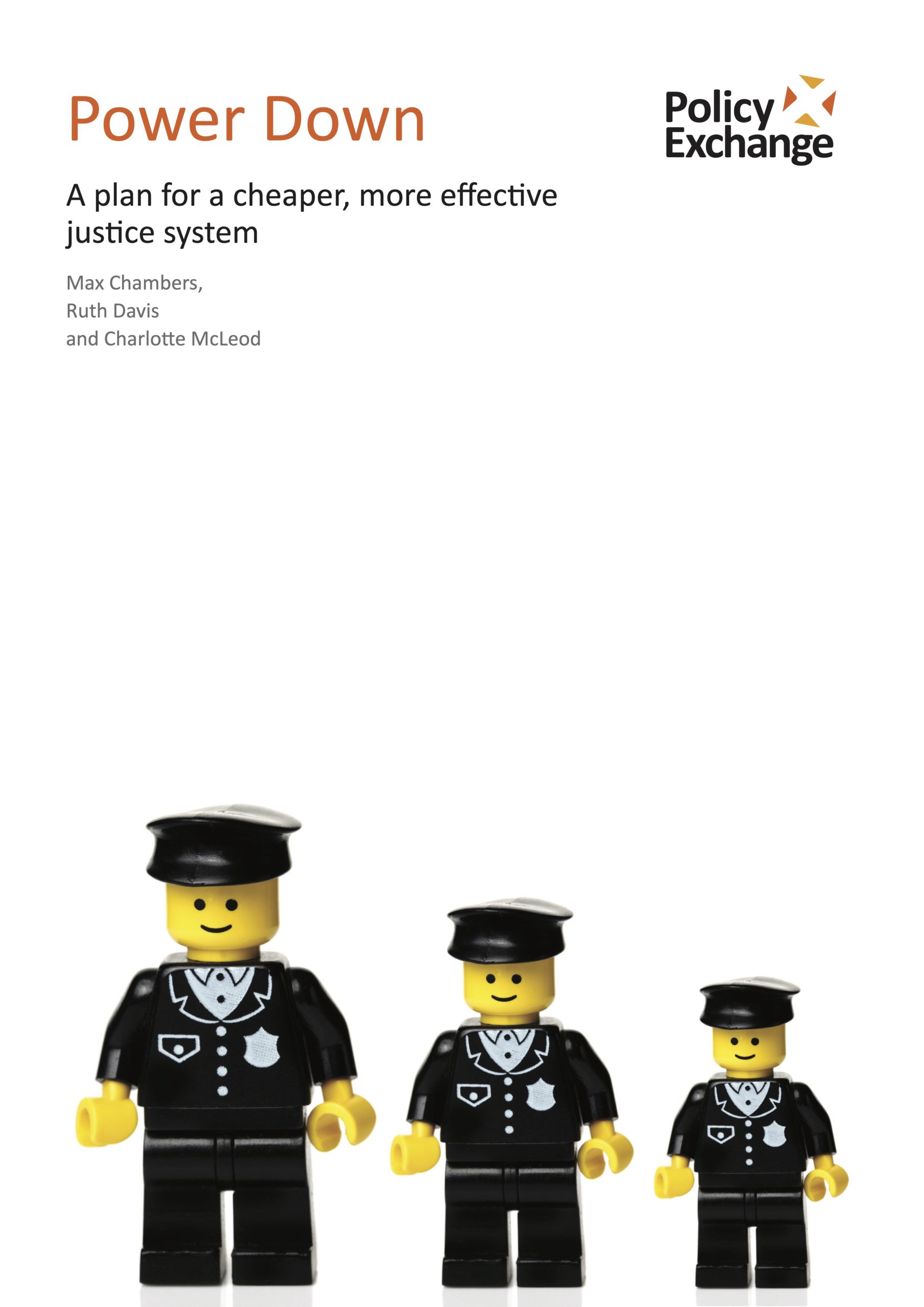
Power Down: A plan for a cheaper, more effective justice system
Power Down argues that the election of Police and Crime Commissioners (PCCs) is a once-in-a-generation opportunity to change the balance of power in a system currently almost bereft of local control, financial responsibility or democratic accountability.
It proposes a strategy for a deliberate, steady decentralisation of the criminal justice system. Instead of local leaders looking upwards and inwards to Whitehall for direction and validation, they should increasingly look outwards to each other and downwards to the citizens they serve. In doing so, the system will see reduced duplication, stronger coordination and the administration of cheaper, better justice.
We are not calling for wholesale change overnight. Instead, we set out a steady process that would mean that, as PCCs become more experienced and develop their infrastructure locally, they would, over time, become:
- More influential and dynamic in national policy-making
- Afforded greater discretion to shape national initiatives
- Offered the opportunity to opt-out of national contracts at an appropriate juncture
- More able to define and lead key local criminal justice pilots and initiatives
- Empowered to define stronger local, strategic relationships and drive effective partnership working
- Given the power to set local criminal justice strategy and performance-manage CJS agencies
- Able to directly commission some key services to cut crime, informed by local needs
- Offered the flexibility to invest in new services by raising local revenue
While the changes we outline should happen progressively, the selection of a number of Trailblazer PCC sites – in which the implementation of these steps can be accelerated – would be very valuable. So we recommend that the Government initiate a process to allow a number of ‘Super’ PCCs to put themselves forward, and be selected, to become Trailblazers with a new set of powers in the CJS and public safety arena.
At the same time, the Government should begin to ask wider questions about how best to take advantage of the creation of increasingly powerful, directly-elected local officials with large budgets, significant powers, and stronger clout at the national level. So we end the paper by asking bigger, longer-term questions about the development of PCCs, including examining their potential expansion into other areas of public policy in the long term.
Testimonials
I hope that in due course the Government will go much further along this road of giving PCCs more responsibility for local criminal justice and emergency service systems. For further reading on this subject, I recommend that the Minister get hold of the recent Policy Exchange pamphlet entitled Power Down: A Plan for a Cheaper, More Effective Justice System; there are plenty of ideas in that.
Lord Wasserman



